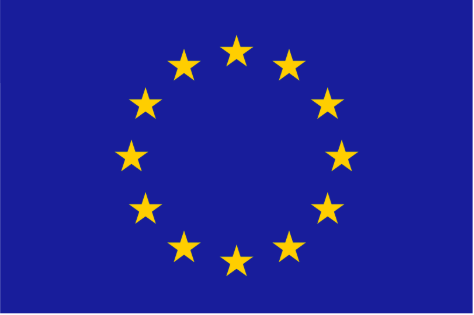What is Brexit?

en.wikipedia.org/wiki/Flag_of_Europe
You have probably heard of Brexit before, but you may not know exactly what it is or the current politics surrounding it. The term Brexit refers to the exit of the UK (Britain) from the European Union. The EU is a collection of 28 European countries that work together to trade, determine laws and transportation, and share a currency. In 2016, there was a public vote, or referendum, to decide if the UK would leave the EU. The choice to leave won with 51.9% (compared to the 48.1% that voted to stay). The total vote had over 30 million people who turned out to vote on the decision.
The deadline for Brexit negotiations is March 29, 2019. That’s in less than a month!
The biggest debates surrounding this topic are:
- a) whether or not to continue with the plan to leave the EU
- b) will there be a deal if the UK decides to leave
- c) how will this affect the UK
You may be wondering what “a deal” means. As countries exiting agreements can be difficult and have unforeseen consequences, some politicians want a deal between the UK and EU. This would reduce the problems of a full exit and protect the companies/citizens. This would mean the UK would only partially exit the European Union. Theresa May, the British Prime Minister, requested a 585-page legal deal that spelled out the terms of the withdrawal. In Parliament, however, the deal was voted against. Since then, she has been rewriting a new deal.
This leaves the UK with a few options, each with unique benefits and drawbacks. If there is no agreed upon deal by March 29, then there will be a “no-deal Brexit.” This would result in an instantaneous exit from the EU, without a transition period. The transition period would allow for all companies to get ready for Brexit and allow the governments to work out the kinks of the agreement. Without a deal, there will be no transition time. Even worse, the advanced, fluid trade network in the UK would be disturbed by new checks. As any product coming from the EU would no longer be expedited, there would be a significant delay of goods (including fresh food and medication). However, one benefit of a no-deal Brexit would be the money saved by the UK. Instead of having to pay the $39 billion owed to the EU, the debt would be ignored with the deal. This money would cover the cost of the whole Brexit ordeal. If not paid by the UK, the EU would have a deficit of money for employees, officials, etc.
Another big problem with Brexit is the border issue. The only land border between the UK and EU is right in between the Republic of Ireland and Northern Ireland, with a length of 310 miles. If the United Kingdom exits, there will be a heavy increase in security measures. Whether there is a hard border or a reduced-security backstop, there will still be complications for people trying to bring products over the border. Any change in the border between these historically hostile countries could incite conflict or violence once again.
In the end, the UK can either go through with Brexit, or find a way to avoid it. One solution is another referendum, but the public majority already voted to leave. Another vote would take weeks to prepare and could further complicate matters. The UK could also choose to go back into the EU. Up until the official date, March 29, the UK has total freedom to reenter the European Union. This option is relatively controversial, however, due to the fact that the UK would essentially be going against the popular vote.
The future of the UK will be decided on March 29th. Regardless of the outcome, the UK will have to work with the EU and find solutions to all the problems the country currently faces.
Works Cited:
Ellis, Sam. “How Brexit Could Cause a Crisis at the Irish Border.” Vox.com, Vox Media, 21 Aug. 2018, www.vox.com/videos/2018/8/21/17764444/brexit-irish-border-ireland-eu-uk.
“Flag of Europe.” Wikipedia, en.wikipedia.org/wiki/Flag_of_Europe.
Ucl. “The Mechanics of a Further Referendum on Brexit.” University College London, University College London, Gower Street, London, WC1E 6BT, UK, 8 Feb. 2019, www.ucl.ac.uk/constitution-unit/research/elections-and-referendums/mechanics-further-referendum-brexit.
Wheeler, Alex Hunt & Brian. “Brexit: All You Need to Know about the UK Leaving the EU.” BBC News, BBC, 31 Jan. 2019, www.bbc.com/news/uk-politics-3281088 .





